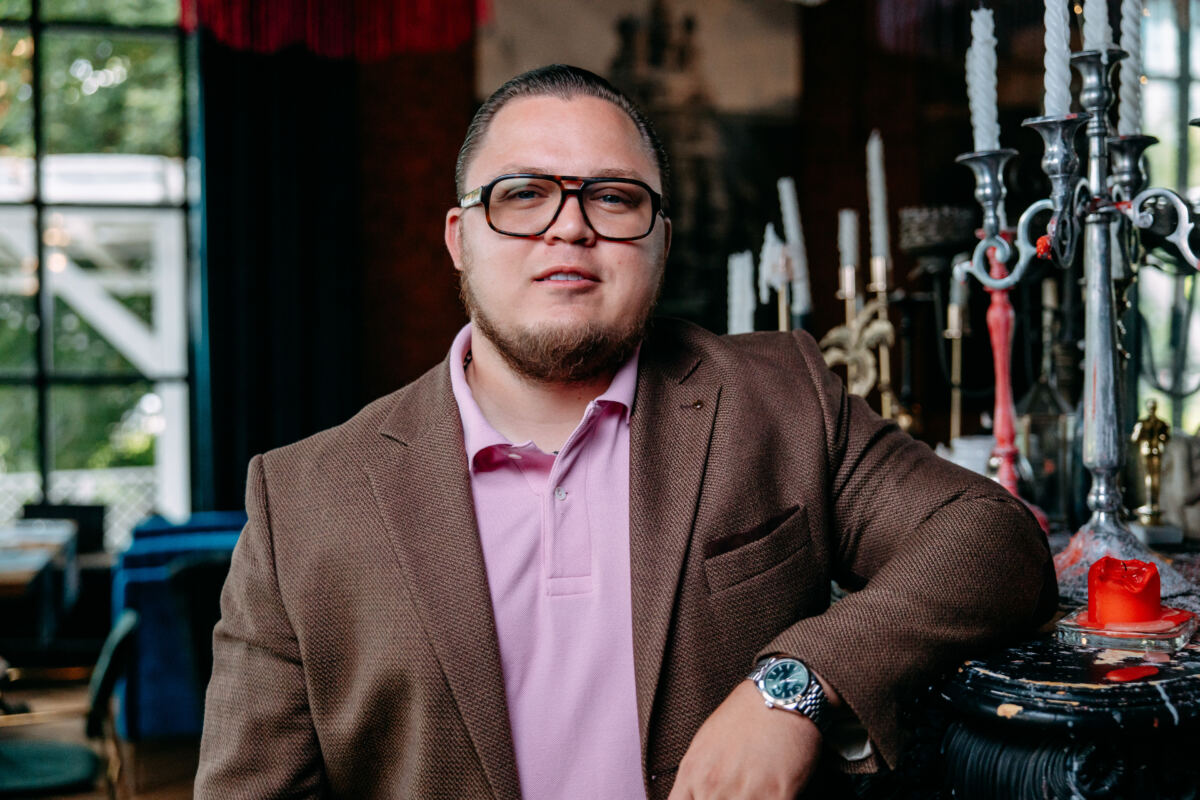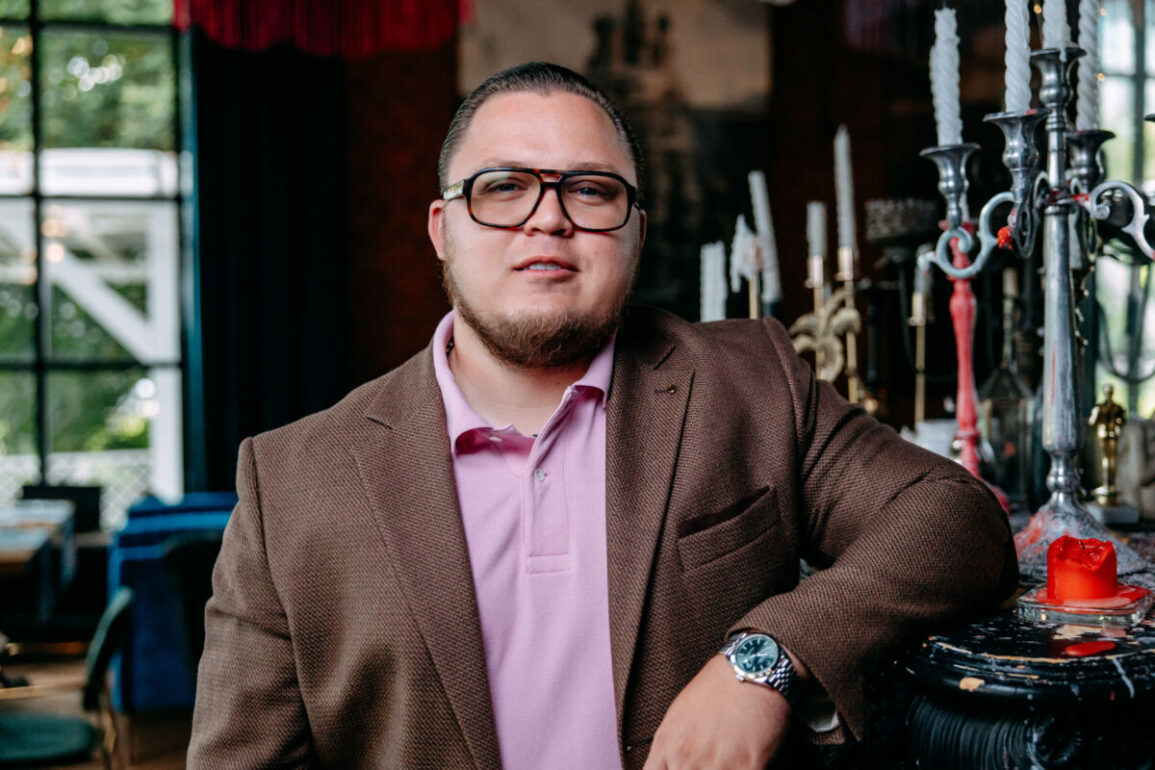
Viacheslav Boreyko, a successful restaurateur and title holder of the “Best Entrepreneur” title in the “Food and Beverages” category, shares his experience in developing a restaurant business during times of crisis and effective ways to mitigate inflationary risks.
Following the global pandemic and significant economic downturn, the food service market is now on a path to steady growth from 2024 to 2031, as confirmed by a recent study by Verified Market Research. North America is among the regions that are showing rapid development and are driven by a strong focus on innovation.
However, the catering and restaurant sectors face several challenges, including changes in environmental law, the need for digital transformation, and inflation. Only experienced and talented leaders who have navigated multiple crises can effectively manage these challenges. Viacheslav Boreyko is one such leader. He knows how to handle economic pressure, has developed his business during the COVID-19 pandemic, and has built several profitable restaurants.
Currently, Viacheslav plans to launch his projects in the U.S. market and is ready to share his expertise on building an efficient restaurant business and study on starting a restaurant from scratch and making it profitable within four months.
Hard Lessons
The pandemic was a tough time for the food service industry. Tens of thousands of cafes and restaurants worldwide went bankrupt and closed. However, those who survived this harsh period gained new incentives for growth. Viacheslav Boreyko entered the pandemic with one restaurant and emerged with three profitable establishments. Vyacheslav essentially went through a survival school in extreme industry conditions, learning how to cut costs on secondary matters while investing in the most critical aspects of the business.
“The pandemic allowed us to pay attention to all the nuances, aspects, and details that are often overlooked during the daily grind,” notes Viacheslav Boreyko. “A clear understanding of our activities, step-by-step knowledge of restaurant operations, and the successful execution of past projects fueled the drive for scaling. The practice and experience gained under difficult conditions helped us continue to move forward.”
End of the lockdown, Vyacheslav became more diligent in protecting his business against the possible recurrence of force majeure events. He incorporated these conditions more thoroughly into contracts with partners, created a reliable financial base by revising rental rates, and broke down payment obligations. Additionally, there was a restructuring of production processes and a modernization of the menu. This enabled him to emerge from the crisis with higher productivity and discipline.
Furthermore, the restaurateur implemented several modern digital solutions in his establishments, simplifying restaurant network management and improving customer service. Viacheslav shared his experience in a scientific article on the role of digital technologies in restaurant management, published in the journal “Creative Economy,” dedicated to effective business technologies.
Current Challenges
The extreme cost-saving practices adopted during the pandemic remained useful after its conclusion when the world faced high inflation. Proactive management strategies and a carefully considered approach to pricing became essential tools for maintaining business profitability amid fluctuating food prices, logistics, and other services.
Vyacheslav suggests that restaurant owners dealing with inflation should start by setting up a clear and detailed accounting system. This will help them track and analyze all their expenses by category and business process. Next, expenses should be divided into strategic and non-strategic, with priorities correctly set across directions. For some, cutting costs is a smart way to save on operational expenses, but for others, it might hurt important strategic opportunities. For example, cutting staff costs isn’t advisable because skilled and experienced employees are crucial in the restaurant business. Vyacheslav, who manages over 120 employees and has successfully launched five profitable dining establishments, confirms this.
“Our goal is to reduce expenses and internal consumption without sacrificing the quality of services,” says Vyacheslav. “To do this, you must remain flexible, constantly adapt to changing conditions, and seek growth opportunities where previously hadn’t.”
Another crucial area for cost-saving is business process automation. However, it should be implemented following a well-thought-out plan and a clear understanding of goals. Automation helps optimize workforce resources by easing employees’ burdens and allowing them to focus on other tasks. Statistics show that companies that invested more in automation before the pandemic fared better during the crisis. They experienced fewer supply chain disruptions, better labor productivity, and higher demand.
As for pricing, Viacheslav advises approaching this issue cautiously and raising prices gradually to avoid alienating customers. Price increases should be accompanied by the introduction of new menu items with higher margins, making the process more comfortable for regular patrons and attracting new customers.
Viacheslav Boreyko’s management methods in the restaurant business were highly praised at the Cases&Faces International Business Award, where he won the “Best Entrepreneur” award in the “Food and Beverages” category.
A Reliable Team
In addition to rising costs, businesses have faced labor shortages in some regions over the past few years. The lack of personnel leads to significant financial losses for entire industries and individual businesses. Viacheslav Boreyko stays abreast of modern management trends and exchanges experiences with top industry professionals. He understands that the issue of quality and reliable labor resources is very relevant to the food service sector. To ensure that his business has good and effective staff, business owners should focus more on creating comfortable working conditions for employees. One such condition could be the possibility of direct feedback between staff and the business owner. Viacheslav believes that it benefits both parties.
“This helps prevent staff burnout. If there are any work-related difficulties or requests from the team, they are discussed and resolved. Employees are allowed to make mistakes and then fix them. We also offer complete flexibility regarding work schedules. Employees can work half-days or create personal schedules if they are studying or juggling jobs. Additionally, we offer excellent financial incentives. This results in low staff turnover and significant savings on training new employees.”
Vyacheslav is eager to share his experience and expertise in restaurant management. He is already doing this successfully in the CIS countries by serving as a judge and mentor in professional competitions and awards, as well as offering auditing and consulting services to aspiring entrepreneurs. Viacheslav Boreyko sees his mission as contributing to the development of the global restaurant industry by promoting new management technologies and sharing experiences on a global scale.
Greg Grzesiak is an Entrepreneur-In-Residence and Columnist at Grit Daily. As CEO of Grzesiak Growth LLC, Greg dedicates his time to helping CEOs influencers and entrepreneurs make the appearances that will grow their following in their reach globally. Over the years he has built strong partnerships with high profile educators and influencers in Youtube and traditional finance space. Greg is a University of Florida graduate with years of experience in marketing and journalism.
This post was originally published on this site be sure to check out more of their content








